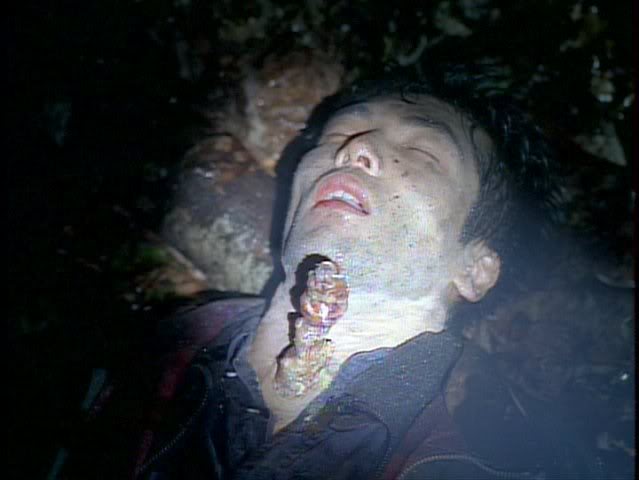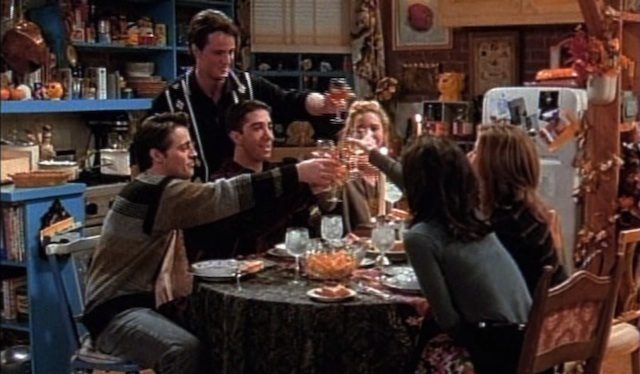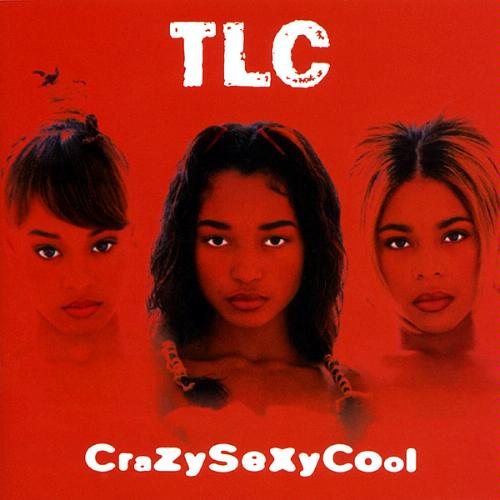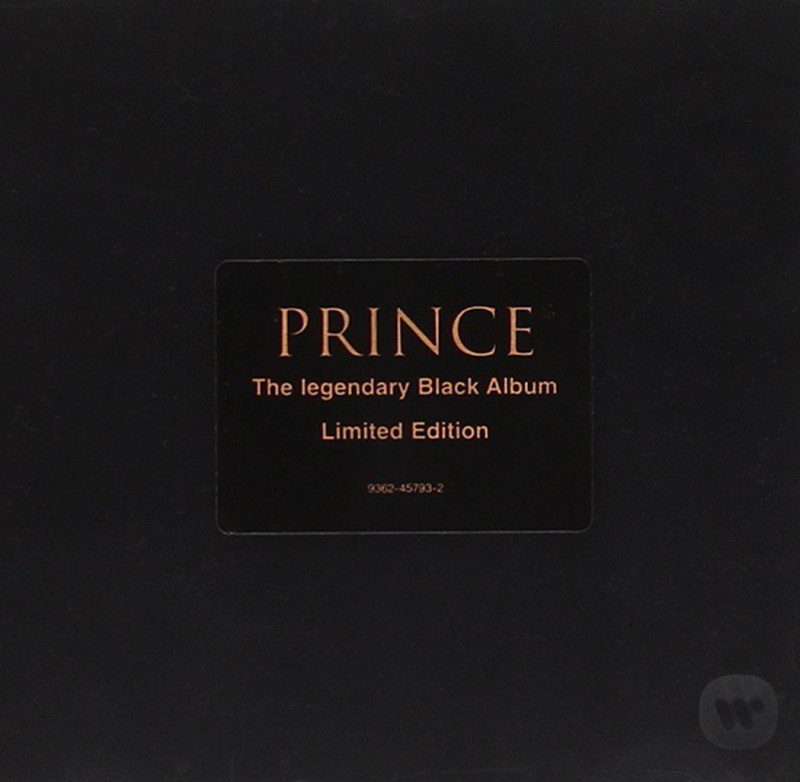PopCulture25YL looks back at the music, shows, comics, books and whatever else we want from the month that was November of 1994 to explore why they’re still relevant to us 25 years later. This week brings us The X-Files’ “Firewalker”, Friends’ “The One Where Underdog Gets Away”, TLC’s CrazySexyCool, Prince’s The Black Album, and The Beatles’ Live at the BBC.
VHS In The VCR
The X-Files- S2E9 “Firewalker” by John Bernardy

After last week’s return of Scully completed the end of the necessary arc that kept Mulder and Scully apart, the X-Files wastes no time resetting to the Season 1 status quo with mixed results.
There are two moments where Scully acknowledges she wants to get back to work, and one time when Mulder wants to keep her more safe than normal, but otherwise, it’s a standard monster-of-the week formula once again. And honestly, it’s even down to the exact formula of “Ice.” I mean “Darkness Falls.” I think of it as the last in a trilogy of episodes where Mulder and Scully get quarantined while the people around them succumb to predatory nature.
While “Firewalker” is a solid episode, put in context of a reversion to the norm after the show’s mythology just exploded, coupled with feeling like it’s been done before, this episode can’t feel anything less than disappointing. Thank god it was competent and filled with good acting by everyone, including Bradley Whitford as Daniel Trepkos, the episode’s antagonist-no-wait-he’s-the-good-guy.
Turns out Trepkos and his team found a silicon-based life form inside the volcano they were studying, but that life form was a fungus that reproduced by outgrowing its host and then infecting nearby hosts that breath in the exploded spores. But we don’t know that right away.
We don’t know Trepkos’ teammate Phil Erickson was the first infected human. We don’t know that he deduced how everyone else was infected when Erickson died in the other room. We don’t know it until Jessie O’Neil had already bolted herself to Scully with handcuffs because the life form was ready to leave Jessie and needed a new viable host.
The drama throughout was good clean fun in an action movie way, and the peril felt reasonable for the stakes. Except I really wasn’t feeling any chemistry between Trepkos and O’Neal, not enough for him to bring her body down with him into the volcano when he exiles himself in the end as if he were Frankenstein exiling himself after his monster wreaked havoc on the people he worked with. I understand he and O’Neal were having an unspoken affair, but I didn’t buy that there was love as much as an allure brought on by power differential.
This episode may be a letdown, but just about anything would be after the Scully saga. This was competently made, and enjoyable enough to feel more like part of a set rather than a re-tread.
Friends – “The One Where Underdog Gets Away” by Abbie Sears

So, the final episode of Friends to air in November 1994 was “The One Where Underdog Gets Away” and this episode is a special Thanksgiving treat!
I absolutely love holiday specials. Every Christmas I go back and watch a massive selection of my favourite Christmas and Holiday episodes from various series and this is always in the list. Friends took a short break after this episode and returned quite close to Christmas time, and I like to think it got everybody into the festive spirit towards the end of November.
We join Rachel in the coffee house as she asks her boss for an advance on her paycheck, but her boss–being the lovely man he is– tells her “Rachel, sweetheart, you’re a terrible, terrible waitress. Really, really, awful.” And let’s all be honest with ourselves, he is 100% correct. So Rachel decides to make enough money to go skiing with her family through tips.
The gang make their Thanksgiving plans: Monica will cook for herself and Ross because their parents are out of town. Chandler is boycotting every single one of the pilgrim holidays because during Thanksgiving dinner as a child, his parents decided to tell him they were getting divorced while he had a mouthful of pumpkin pie. One of the first insights we get into Chandler’s childhood trauma, by the way. Joey plans to spend Christmas with his family, and Phoebe is available because her grandmother’s boyfriend is lunar and he celebrates Thanksgiving in December.
One of my favourite things in this episode is Phoebe’s sense of fashion. It’s always quirky and amazing, but here, during the coffee house scene she is wearing a very bright blue, red, orange and white shirt that I love. And later, during the cooking she looks so very bohemian and very fitting with the autumn style in a brown and green sweater with layered necklaces. Her hair is gorgeous there, too.
During the preparation of the feast the giant Underdog balloon escapes the Thanksgiving Day Parade and is loose over the city, and after watching from the roof, everyone gets locked out.
Rachel misses her flight, and Joey’s family won’t see him because they think he has VD. It’s quite a hilarious journey for Joey this episode: he becomes a model for the city free clinic, but he is stuck as the VD guy. As posters of Joey’s VD poster are plastered across the city, The Police’s “Don’t Stand so Close to Me” plays in the background. Something I found funny is that one of the restaurants displaying Joey’s poster is a chicken restaurant called Pluck U!
Ross spends the majority of the episode with his ex-wife Carol. He can’t handle the fact that Susan talks to the baby in Carol’s stomach and he doesn’t so he decides to sing. This song is something I have been singing to myself for years since I first heard it. A parody of “(Theme From) The Monkees,” but with what I consider to be even better lyrics. “Hey hey you’re my baby, and I can’t wait to meet you. When you come out I’ll buy you a bagel and then we’ll go to the zoo. Hey hey I’m your daddy! I’m the one without any breasts!” Incredible, don’t you think?
So, in the end, after plenty of shouting and blame, everyone ends up at Monica’s apartment (as it should be). The dinner is ruined and the gang sit around the table eating grilled cheese. Chandler ends the episode with a moving toast about how he’s thankful that everyone’s Thanksgivings sucked, because they all got to spend it together. I think that this episode is very honest. I’m from the UK, so we don’t celebrate Thanksgiving, but I imagine it to be like the New Year’s Eve situation. In theory, it should be a magical occasion and you have your plans in your mind and an image of the perfect fun holiday but it often involves arguments and guilt and generally turns into a disaster. But the Friends gang, they have each other. So it’s pretty wonderful.
CDs On Rotation In Our Six-Disc
TLC – CrazySexyCool by Chris Flackett

The ‘90s were an interesting time for RnB music, and perhaps in hindsight we can say it was a transitional period for the genre. With the successful infiltration of hip hop into the mainstream, it wasn’t long before RnB started to experiment with its stylistic trappings. The likes of Aaliyah—with her cool Timbaland productions—and Blackstreet found ways to fuse the sweet soulfulness of RnB with the tough, aggressive beats of hip hop to create a sound that took its strength from the tension from the exciting push and pull between the sweet and the tough.
TLC’s CrazySexyCool is a key document of this transformation. Their second album, it was recorded with reduced contribution from Lisa ‘Left Eye’ Lopez, who was in the midst of dealing with some very public problems in the wake of an abusive relationship she had found herself in. And yet it was Lopez’s most significant contribution that arguably moved TLC from successful but peripheral players to major superstars overnight.
“Waterfalls” is still, after all these years, an exemplary pop song. It swings and vibes like a lazy summer’s afternoon, all laid back jazz vibes over a solid hip hop beat. The vocals are restrained, tasteful but emotive, and that chorus is one most artists would kill to have. At a time when to be socially conscious in pop was to preach, the subtly of the line “Three letters took him to his final resting place” was refreshing and devastating in equal measure.
The rest of the album switches between coy odes to new love and frank, empowered discussions of sexuality and desire, bringing real woman power where pretenders only brought sanitised girl power elsewhere. These are women who knew what they wanted from their potential lovers and were confident enough to say it.
Tough and sweet, coy and frank, love and lust. A potent mix, strong and complex, just like the women of TLC themselves. The modern pop sound starts here.
Prince – The Black Album by Abbie Sears

The Black Album is a bit of a mystery to me, and not just because of its all-black cover! No, The Black Album was never permanently released; it was only released as a limited edition album on November 22nd 1994 until January 27th 1995.
Originally The Black Album was planned for release in the ‘80s as a follow up to Sign o’ the Times but apparently Prince pulled the album before its official release and thought the album to be evil.
I don’t know why this is, but this album is seen as a response to criticism that Prince’s music had become too close to pop music rather than the funky Prince that we love. This album certainly proved Prince to be the king of funk—this album is nothing but funk. But perhaps Prince didn’t feel too good about putting out an album as a comeback to criticism? I can’t say for certain. The Black Album, however, has come to be known as The Funk Bible and I couldn’t agree with that title more.
The tracks are classic Prince funk. They are sexy and they make you want to dance. Then we have the track “Bob George.” You might think, looking at the track names alone, that “Superfunkycalifragisexy” might be the star of the show, and it is amazing, but “Bob George” takes the album in a different direction. It almost doesn’t fit at all, and yet it does simply because I don’t expect Prince’s tracks to carry on at the same pace. “Bob George” is somethin’ else, and is a kind of spoken word story of a paranoid man accusing presumably his woman of seeing a rich man (Bob) and the story takes a violent turn. It is said that Prince paired the name of his former manager Bob Cavallo and a critic Nelson George to create this awful rich man who stole his girl. Either way, it’s incredibly entertaining. And if you’re listening to the album for the first time, you’ll likely stop and say “what?” when you hear it.
On the one hand, it’s a shame that The Black Album was limited edition because it means not so many people got the chance to experience it. Original copies today can be very pricey; even I don’t own one. But then again, I think The Black Album is a rare masterpiece and for that reason deserves to be sought after by many.
The Beatles – Live at the BBC by Brian Krikorian
At this point, it appears that the essential mystery of the Beatles—how they did what they did, and why it had such an unprecedented global impact—will be an eternal one. In the five decades since their final album, their mystique and cultural power have shown no signs of decline. More than any of their contemporaries—and maybe any band, period—their work sits comfortably in a modern age when all music from all eras is easily accessible, subtly destabilizing the concept of “now.”
We can account for almost every recorded note—and practically every hour of their lives—from 1963-1970 and beyond, and yet somehow there’s always more to know and analyze. The Beatles have survived changing tastes and formats, giant leaps in technology, even the threatened indifference of millennials. Not content to rule in their own time, the Beatles have found a way to hold a significant stake in ours.
Their music does the heavy lifting, of course, but another key component of their afterlife longevity is Apple Corps’ peerless stewardship of their back catalog. The modern reissue and restoration campaigns we now annually expect—with their shadow histories of unreleased takes, studio chatter and sometimes controversial revisions—started tentatively with 1994’s Live at the BBC, a compilation of British radio broadcasts from 1963-65. That release stoked the audience’s desire for more, leading to the late-‘90s Anthology series, the 2009 remasters, and everything that would follow.
Before Live at the BBC, the official canon seemed to have been set in stone for 20 years. Any compilations or reissues, even 1973’s celebrated “Red” and “Blue” collections, featured no unreleased songs or fresh angles. Live recordings were limited to 1977’s Live at the Hollywood Bowl, a transparent attempt to combat bootleggers that sounded like the band losing a noise war with screaming teenagers. If you wanted to hear something new, you had to wander the black-market forest of bootlegs, which, in the days before file-sharing, meant trading—or paying exorbitant prices—for CDs or cassettes of often dubious quality.
Heard today, Live at the BBC sounds like the Beatles’ first official attempt at world-building, allowing us to move around within a set of events and achievements which seemed frozen by the accepted version of history. Its 56 songs and 13 dialogue tracks, recorded “live in studio” (minimal overdubs, but allowing for retakes) were enticingly same-but-different. You heard looser, more kinetic versions of the hits, a whole set of unique cover versions which could easily have replaced their counterparts on the official albums—and, crucially, a selection of corny jokes, host banter, and responses to listeners that recast John Lennon, Paul McCartney, George Harrison, and Ringo Starr as human beings instead of cultural archetypes.
An initial selling point for BBC was the inclusion of a previously unreleased 1963 Lennon- McCartney track, “I’ll Be On My Way,” one of the songs they gave away to other artists during their first flurry of productivity. The song itself, still very much under the spell of Buddy Holly and a spiritual cousin to “I’ll Follow the Sun,” is less important here than the public acknowledgment of its very existence as a Beatles song—and its implicit promise of more treasures to follow. It provides added dimension not just as “new” material, but as a fragment from a possible alternate timeline, one where the same band conquered the world with a slightly different repertoire.
Recorded at a time when a decent chunk of Beatles albums consisted of cover versions, the unreleased covers prove to be the main revelations of Live at the BBC. We can still hear echoes of their working life as a pre-fame showband in Hamburg, playing to requests, and realize that maybe what made it to vinyl before 1965 was more a matter of marketing than a song’s actual merit. All by itself, their mighty cover of Richie Barrett’s “Some Other Guy” will make you reconsider the wisdom of the track selection for Please Please Me.
To hear Lennon bring his early-‘60s insouciant charm to Chuck Berry’s “Memphis, Tennessee” and Johnny Burnette’s “Lonesome Tears in My Eyes” is a chance to dream up an entire phantom album between With the Beatles and A Hard Day’s Night. To listen to McCartney tear through the Everly Brothers’ “Lucille” or nonchalantly master a schmaltzy show-biz ballad like Mikis Theodorakis’ “Honeymoon Song” is to freshly appreciate his staggering range. And although Harrison and Starr were more famous for their personalities than creative input at this early stage of the Beatles’ evolution, it’s fascinating to hear the former’s vocal confidence grow in real time, while the latter has already perfected his cheerful everyman persona and hangdog sense of humor.
It’s ultimately those four famous personalities which are given added depth in retrospect. We hear Lennon fighting off boredom with banter, perking up when there’s an opportunity for his surrealist wordplay, and McCartney displaying infinite patience and diplomacy answering questions he’s heard hundreds of times (and will hear millions more). We hear Harrison playfully dedicate a song he describes as “John shouting” to nuns on the Isle of Wight, and Ringo’s carnival-barker introduction to “Matchbox.” And we hear the weariness that sets in around 1965, as their schedule grinds on and their voices get hoarser, their performances more ragged. With the passing of time and our ever-increasing knowledge of all things Beatles, it’s easy to blend their different phases and circumstances, each informing the others, backwards and forwards in time.
It’s been a big year for the Fab Four, mostly due to the fanfare around the 50th-anniversary rerelease of Abbey Road, but this new round of remastering, reinterpretation and re-litigation of their legacy is just the latest phase of a process that was kicked into overdrive with the release of Live at the BBC. It seems like every year is a big one for the Beatles.

